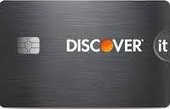Simply put, a secured credit card uses the money that you deposit in a security account as collateral. This money gives lenders the confidence that you’ll be able to pay them back even if you have no credit history, or a damaged credit score or credit history. Should you fail to pay back your bill, the lender can use your deposit to meet the repayment.
One of the biggest advantages of using a secured card is that it can help to improve your credit score. But keep in mind that for this to happen, you need to make payments on time every month.
Annual fee and other fees
Most credit cards have an annual fee, but some come with a $0 annual fee. You may want to take advantage of a card with no annual fee, but in doing so you could be missing out on benefits attached to the card, advantages worth more than the annual fee charged.
In some cases, you may also have to pay other fees, such as a set-up fee, a foreign transaction fee, cash advance fee or late payment fee, so be sure to read the fine print to avoid any surprises.
Interest rates and repayments
Interest rates on secured credit cards are usually higher than the ones on unsecured cards, so it’s important to always pay your balance in full each month, before interest can be charged. Having a plan to make regular full payments works to your advantage and is absolutely vital in building your credit. This will also eventually lead to your transition onto unsecured credit cards.
Credit repair and establishment
If you’ve missed payments in the past, then it’s likely that you have damaged your credit history and credit score. To get things back on the right track, consider applying for a secured secured card and making a security deposit. Using the card responsibly will help to improve your credit score.
Getting a secured card may also be the right move if you are only starting to build your credit history. While the deposit and annual fee may be expensive, setting a budget with this kind of credit card can be the solution to re-establishing your credit.
Credit history and score
Because the lender relies on the amount of money you've put down as your deposit, your credit check isn't as much of an issue when it comes to secured cards as it is with traditional cards. The lender sees your deposit as a guarantee of payment, instead of just using your credit score as an indication of whether you can pay or not. As a result, your application for a secured card will more likely be approved.
Online payments require a card
While some people may prefer to use cash, cash can't be used for online shopping. If you plan to pay bills online, you'll need to have a card handy.




